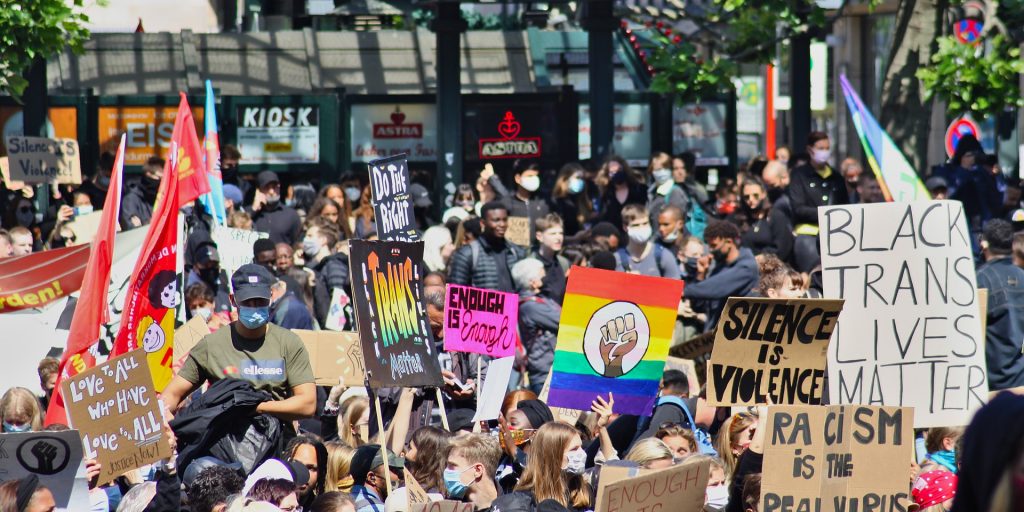Boston University report highlights mayoral perspectives on racial wealth gap
America’s racial wealth gap is well documented. A new report from the Boston University Initiative on Cities, for example, notes that in 2014 white households in Washington, D.C. held a net worth 81 times greater than Black households. And in Los Angeles, Calif., the median net worth of white households was $355,000, whereas the median Mexican and Black households had a median worth of $3,500 and $4,000 respectively.
Elsewhere, “U.S.-born Blacks in the Boston metropolitan statistical area had a median wealth of merely $8 in 2014, compared to white households’ median wealth of $256,500,” continues the report, which was compiled via the organization’s 2021 Menino Survey of Mayors. “Nationwide, the racial wealth gap persists across a variety of assets, including housing, businesses, and retirement accounts.”
Other topics covered in the survey—the findings of which have already been released—include “Building Back Better” and “Mayors and America’s Homelessness Crisis.” In compiling the findings, surveyors interviewed 126 mayors from 39 states last summer. The Menino Survey of Mayors is conducted annually by Boston University’s Initiative on Cities with support from Citi and The Rockefeller Foundation.
Faced with this striking data and the concerning implications of it, 67 percent of mayors who responded to the survey said they’re worried about the racial wealth gap in their own cities. Leaders of large cities, especially, reported significant concerns, identifying widespread discrimination of minorities in their communities. Along political lines, 80 percent of Democratic mayors reported racial wealth gap concerns in their communities compared to 30 percent of their Republican counterparts.
To close this gap, the report highlights several cities that have spearheaded pilot programs directed at the problem, such as Evanston, Ill.’s reparations program, which “offers homeownership assistance for Black city residents,” or Stockton, Calif.’s universal basic income program. Starting in 2019, Stockton provided $500 per month to low-income households for two years. The report notes that 40 percent of mayors supported implementing similar programs in their cities.
“This year’s survey underscores local leaders’ awareness of the numerous challenges that the racial wealth gap presents in communities across the country,” said Katherine Levine Einstein, Menino Survey Co-Author and Associate Professor of Political Science at Boston University. “This broad agreement goes away, though, when we ask mayors their views on specific policy programs that target this gap, with sharp differences by partisanship, city size, and city socioeconomic status.”
There are numerous factors that drive America’s racial wealth gap, with some rooted in damaging historic actions taken by the federal government and, more broadly, in the nation’s dark past. Many of the causes are outside the purview of local mayors, the report says. That being said, municipal governments can leverage powerful levers like affordable housing and promote small businesses, which in turn can help support Black and Latino households, reducing the racial wealth gap. And those public leaders that responded to the report noted they’re pushing to use technical assistance to address racial wealth gaps in the business sector: 48 percent said they’re using technical assistance as a primary means of support; 31 percent listed the municipal procurement process and 26 percent highlighted direct financial assistance in amounts less than $20,000.
These are notable steps administrators can take because, based on the findings, lack of personal wealth or adequate assets was listed as a “major barrier for their cities’ small business owners” by nearly every mayor who responded to the survey (81 percent).
Another factor is the ongoing housing crisis and skyrocketing cost of living. This concern is closely tied to gentrification and its potential effects on minority residents, the report notes.
“Breaking cycles of poverty and building wealth in our communities of color strengthens our economies and builds healthier neighborhoods,” said Kansas City Mayor Quinton Lucas. “Local government’s role is about investing in people and places which have for too long not seen the level of investment they need or deserve. We can and must take measures that make it easier for our Black and brown residents to own homes and businesses and to access quality education and good-paying jobs. Local leaders are committed to working intentionally and collectively to address our country’s long-standing racial and economic disparities.”




















